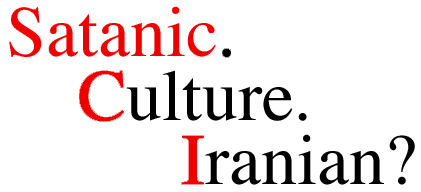![[ Call 1-800-IRAN GOL ]](Images/Ads/IranGol.gif)

![[ Call 1-800-IRAN GOL ]](Images/Ads/IranGol.gif)

By: Jahanshah Javid
Last July 6, the computer center at Harvard University received an urgent call claiming someone was using the university's system to disrupt the popular Iranian newsgroup on the Internet, soc.culture.iranian., better known as SCI.
The alleged saboteur was using the alias `( ) but was apparently not aware of his traceable message ID. A computer services assistant went over to the machine and found a man typing away.
The man was stopped, stripped of his access rights and, in a matter of days, expelled from Harvard summer school.
"We traced the machine and caught the guy in our public area," said Frank Steen, director of computer services. "He was just sitting there sabotaging the newsgroup."
University officials confirm disciplinary action has been taken against the offender but refuse to identify him, saying they are prevented by school records' confidentiality laws.
`( ) managed to post a 300-line vertical message on the newsgroup's subject index expressing, with some vigor, his displeasure of those who criticize Islam and the Iranian government.
"Stop attacks against the IRI (Islamic Republic of Iran) & Islam or pay a dear price," the message read. It also called for the death of non-Muslims, opponents of the Islamic Republic and Andre Agassi, the flamboyant tennis player whose father is an Armenian-Iranian.
"Everyone should understand that attacks against mohammadan islam in whatever form shia... and or sunni will not be tolerated... People who wish to post things on this newsgroup must abide by the laws of islam," it went on, and on.

Among all the wild bulletins that commonly appear on SCI this was particularly odd. But for many users, it was also frustrating. Scrolling past the message was time consuming, especially for those with slow modems.
Reaction was divided amongst SCI users. Some (minority) thought the message was a legitimate political expression. Others (majority) believed ` ( ) had stepped out of line by limiting the freedom of others and threatening his critics.
"SCI is OUR community," said Saeed Ganji. "People... who want to disrupt the intended use of this forum are in fact taking our freedom away." Another SCI user, calling himself G-man, agreed. "Please people!... How can we defend the rights of those who want to annihilate others? You give people like that freedom, and soon you will be their target."
Dariush Anooshfa was more direct. "I simply and specifically am very strongly against any thoughts in any form such as the ones expressed by this fink. Because I think we have seen the dreadful consequences of them."
In reply, PersianKat, defended freedom of speech, no matter how insulting.
"If we limit the freedom of one individual, then where do we stop?... Insulting me does not take my rights away, because I can insult you right back, or choose to ignore you altogether."

The rapidly growing use of the internet has only recently attracted legal and legislative attention in terms of its contend. There is particular concern about pornography and their impact on the young, who are more likely to be behind the computer than their parents these days. Opponents, however, warn against censoring the freest forum in the world.
"Speech on the internet is protected under the First Amendment," said Anne Beeson, a policy analyst at the American Civil Liberties Union. "We believe the best answer is more speech. We should not try to create laws to curb this speech. It would only disempower more general folks."
Current speech boundaries are based on a U.S. Supreme Court ruling (Brandenburg vs. Ohio). It prohibits speech that boils down to "immediate incitement" of "immediate violence." "It's harder to meet that test on-line," Beeson said.

|
     
|
| [ Cover | Previous Article | Next Article | Send Comments ] |
